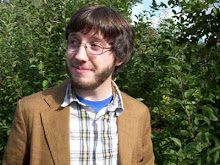I mentioned last Wednesday that I was reading Murakami, and I have now finished “Hard-Boiled Wonderland and the End of the World”. My head hurts a bit, because there’s a lot to wrap my mind around, but I think I liked it. It’s not as great as “The Wind-Up Bird Chronicle” or “Kafka on the Shore,” and it’s very much a science fiction novel, which I honestly was not expecting going into it. I never really think of Murakami as a sci-fi writer; he’s more of a magical realist to me, someone who writes about normal people who stumble into a weird, sinister other world. That’s all in “Hard-Boiled Wonderland,” but the protagonist is not at all “normal,” and the setting is a futuristic version of Tokyo where two kinds of computer specialists are warring over information. There are hints of advanced technology and a large portion of the story involves altering humans with a module that is implanted into the brain to run a computer program.
I guess what it seems like is a Murakami story set a few years later than most of his other work. While many of the familiar elements of his books are there (including a well-like structure that leads to a bizarre netherworld), they are warped and transported. The detail in the book that made me think of this was that the unnamed protagonist explains that he used to have a wife and a cat (another recurring Murakami element), but that they left him. First the wife, then the cat, exactly like in “The Wind-Up Bird Chronicle.” It could be the same character, ten years later. In that time, the world has gotten a little stranger, the weird parts of the earlier story becoming prevalent parts of society.
What I did really like was the structure of the book; it’s split into two sections, reality and myth. The chapters alternate, with the connection between them becoming more and more apparent. Strangely enough, I found myself thinking of the current season of LOST, with the narrative divided between an on-island timeline and a “flash-sideways” timeline. The writers of the show haven’t yet revealed how these two plotlines link to each other, but I wouldn’t be surprised if it worked out to be a lot like Murakami’s book, where the character has to decide whether to escape to his “real life,” or to keep living in the myth. Only on LOST, it isn’t so clear which is which.
Haruki Murakami is one of my favorite writers, and it’s been a while since I’ve read one of his books. His fictional world has become so familiar, and I was glad to be back in it, to see where he would take the story. There were a lot of unexpected things in this novel (and I don’t just mean all of the crazy sci-fi stuff; that kind of stuff is almost expected in a Murakami novel) and I loved the forays into old movies, Russian novels, and Bob Dylan songs throughout the book. I think I’m going to check out his nonfiction book, “What I Talk About When I Talk About Running.” I’d be interested to see if he sheds some light on his own themes, the way Chabon did in “Manhood for Amateurs.”
I also started a new project last week: reading "Ulysses." I'm trying to space it out so that I finish it on Bloomsday, June 16th. That's the day the novel takes place, and it will require me to read about 50 pages a week. So far, so good. But don't worry: I'll be reading other books along the way. If you want to join me in this big reading project, let me know. I just finished the first section (The "Telemachiad") and now I'm onto the second part. And yes, I know it's another book with connections to LOST. But they've thrown so many literary references in there that it's hard to find a book that doesn't somehow connect.
Monday, March 22, 2010
Fiction Mondays: Hard-Boiled Wonderland and the End of the World
Labels:
Books,
Fiction Mondays,
LOST,
Stories
Subscribe to:
Post Comments (Atom)

1 comment:
sounds pretty cool. i don't really get a lot of what he writes but its still a trip. he's got that way of writing endless hooks to keep people moving forward.
Post a Comment